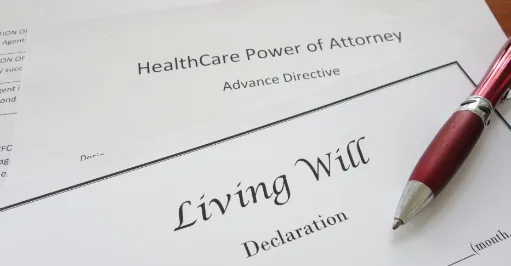Did you know estate planning attorneys recommend anyone over age 18 have a power of attorney? Without one, even a long-married spouse may be unable to make financial or medical decisions if their spouse becomes incapacitated, according to a recent article “How to Set Up a Power of Attorney” from U.S. News & World Report. Naming someone and having the documents created to make them a Power of Attorney (POA) is part of creating an estate plan.
People sometimes hesitate, unsure about giving someone the power to make decisions. If someone becomes incapacitated, someone else—a family member or the state—has to be able to make decisions on their behalf. However, lacking one leads to problems in emergent situations.
State laws vary for powers of attorney, so it is essential to work with a local estate planning attorney who can create a POA specific to your needs and follow your state’s laws.
How to get started with a Power of Attorney
The first and possibly hardest part of a POA is determining who should be named. The individual needs to be responsible, trustworthy, and calm in emergencies. Just because someone is related to you doesn’t qualify them to serve in this role. You should also name a secondary POA if the first is unable or unwilling to act on your behalf.
Next, have your estate planning attorney draft the document, which typically works in connection with other estate planning documents, including your will, health care proxy, and HIPAA release forms.
Be careful about what happens to copies of the documents and where they are stored. Some estate planning attorneys suggest you keep your POA in a fire and water-proof box at home, in the safety deposit box at a bank, or kept with the attorney. Others say you should never put essential documents in a safety deposit box in a bank, as access can be challenging at times. A digital PDF copy of a POA will often suffice, provided a full force and effect affidavit is an original. You should always check with your state law and financial institution to see their requirements as they vary state to state and with institutions.
The POA needs to be updated like any part of your estate plan. Some financial institutions will refuse to honor a POA if they consider it out of date. Some states update their POA of attorney form. For example, New York now requires two witnesses from you when you sign your power of attorney. Every three to five years, you should update your Power of Attorney. It should also be updated if the person named POA becomes incapacitated, dies, or moves to another state or you change your mind.
What is a Springing Power of Attorney?
A Power of attorney for finances or healthcare can be immediately effective when the documents are signed or take effect under predetermined circumstances, such as when the principal becomes incapacitated. In those cases where you want to set a condition for the power of attorney to be effective, it is known as a springing power of attorney because it “springs” into effect at a specific time. It seems like a good idea, but a word of caution: the springing power of attorney requires a doctor’s evaluation of incapacity. This often takes time, which can be the one thing you don’t have in an urgent situation.
Reference: U.S. News & World Report (July 21, 2022) “How to Set Up a Power of Attorney”





